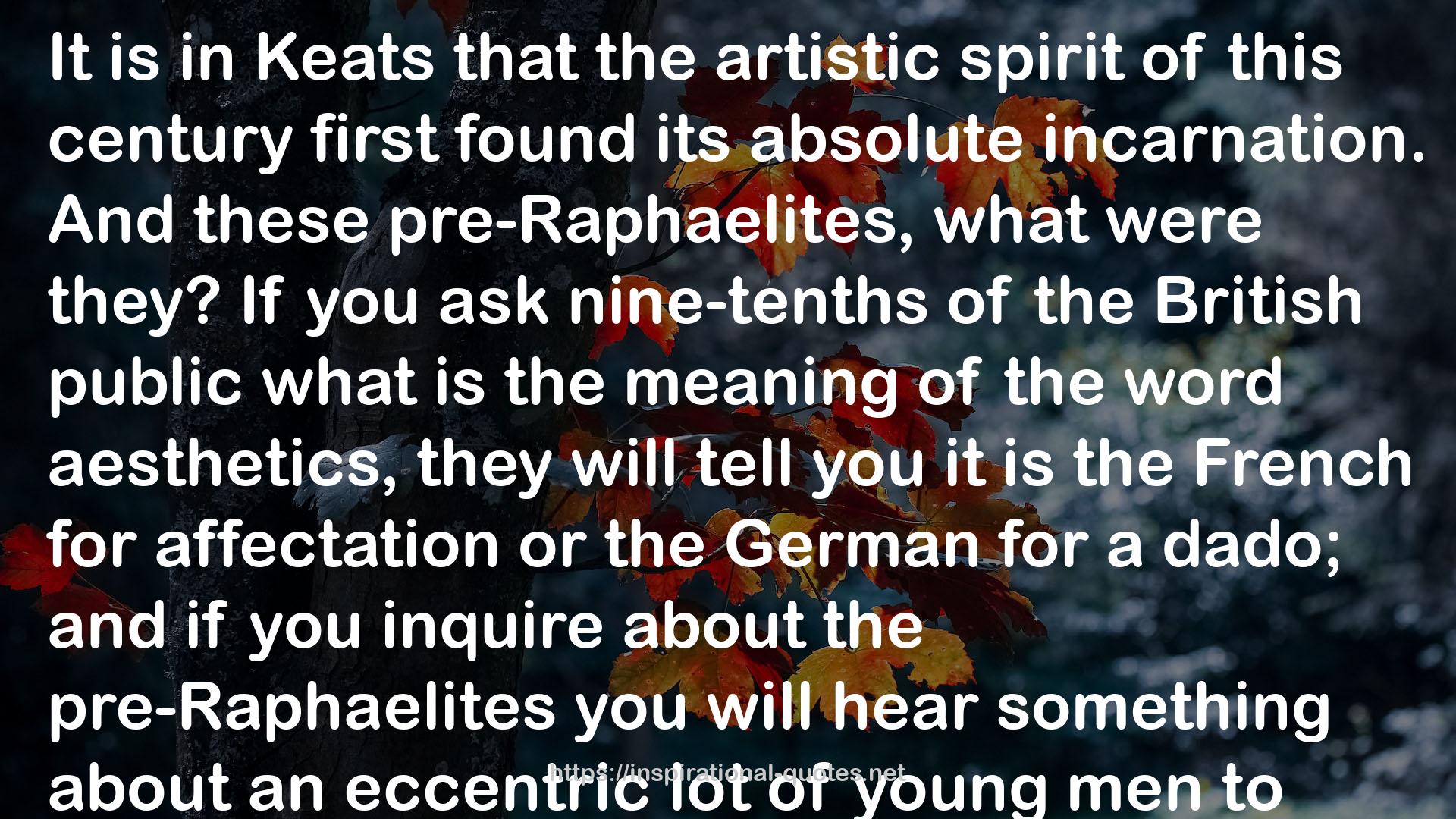" It is in Keats that the artistic spirit of this century first found its absolute incarnation. And these pre-Raphaelites, what were they? If you ask nine-tenths of the British public what is the meaning of the word aesthetics, they will tell you it is the French for affectation or the German for a dado; and if you inquire about the pre-Raphaelites you will hear something about an eccentric lot of young men to whom a sort of divine crookedness and holy awkwardness in drawing were the chief objects of art. To know nothing about their great men is one of the necessary elements of English education. As regards the pre-Raphaelites the story is simple enough. In the year 1847 a number of young men in London, poets and painters, passionate admirers of Keats all of them, formed the habit of meeting together for discussions on art, the result of such discussions being that the English Philistine public was roused suddenly from its ordinary apathy by hearing that there was in its midst a body of young men who had determined to revolutionise English painting and poetry. They called themselves the pre- Raphaelite Brotherhood. In England, then as now, it was enough for a man to try and produce any serious beautiful work to lose all his rights as a citizen; and besides this, the pre-Raphaelite Brotherhood - among whom the names of Dante Rossetti, Holman Hunt and Millais will be familiar to you - had on their side three things that the English public never forgives: youth, power and enthusiasm. "
― Oscar Wilde , The English Renaissance of Art
